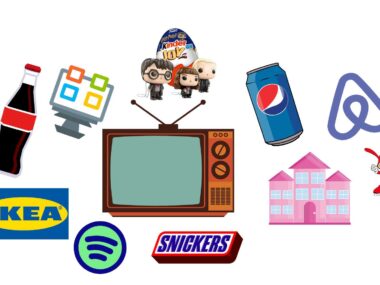For many bloggers, the ultimate goal is to transform their passion project into a sustainable source of income.
But with a wide range of monetization options available, from display ads to affiliate marketing and digital products, it can be challenging to identify the most effective and reliable path.
In this post, to provide clarity and guidance we tapped into the expertise of seasoned SEO professionals and successful business leaders from the BoostMyDomain community, asking them to share their top monetization strategies based on their personal experiences.
Their insights offer a roadmap for bloggers seeking to maximize their earning potential and build a profitable online presence.
Read on!
Charlotte Sheridan
While adding affiliate links to your blog can generate income, we’ve found that, for those who have created a truly helpful blog that truly speaks to a niche audience, selling ad space directly is the most reliable and profitable way to monetize.
This is because, if you’re doing great things, then your potential advertisers will have already started to show an interest in what you do.
With costs for traditional ads platforms increasing alongside targeting becoming more difficult, advertisers are keen to find spaces where they can appeal directly to a niche audience.
So if you have a clear offer in terms of ads (be it on your blog or social media channels), you will find that advertisers come directly to you.

Charlotte Sheridan
Director, Quokka Agency
Iryna Melnyk
From my experience, the most effective and reliable monetization strategy for a blog is a combination of affiliate marketing and offering premium, high-value content to your audience.
Affiliate marketing allows you to recommend products or services that resonate with your niche audience while earning commissions for successful referrals. The key is to only promote relevant and trustworthy products, ensuring you preserve your credibility.
Creating and selling premium content like online courses, e-books, or memberships can provide a stable revenue stream. This works best when your blog is an authority in its field, offering unique solutions to your audience’s challenges.
Pairing these strategies with consistent SEO helps maintain traffic and relevance.
Successful blogs balance monetization with delivering real value, building trust and long-term engagement.

Iryna Melnyk
Marketing Consultant, Jose Angelo Studios
Alena Astravukh
Every monetization strategy should be tailored to fit the specific needs of each blog.
Overloading your pages with ads can harm user experience and negatively impact behavior metrics.
Instead, diversify your approach: include a small number of affiliate links, create sponsored posts, or work directly with advertisers.
One strategy I personally love is creating “best of” lists tailored to your niche. For example, “Best Credit Cards” for a finance blog or “Top Hair Products” for a beauty blog.
If these pages rank well, they can attract advertisers directly to you.

Alena Astravukh
CMO, Co-founder at Elemup
Robert Newman
Long-term, you can only create highly monetizable blogs in niches where your expertise and passion truly shine. Otherwise, you’ll end up ignored and burned out.
When investing in a monetizable blog, remember that it can be sold just like a small business. The standard metric is an expected sale price of 18x your monthly profit. But sites regularly sell for 50x or more of their monthly income.
High-traffic blogs with zero monetization are still highly valuable. For example, cakestyle.com sold for $25k from about 25k monthly visitors and zero monetization.
That means the most effective way to monetize a blog is to research and invest in ways you can increase monetization while increasing the asset value of the site.
That includes targeting keywords with high organic traffic value and bolstering those pages with highly valuable backlinks.
Currently, the best whitehat method to do that is through HARO-style backlinks on platforms like Qwoted, SourceBottle, and Featured.

Robert Newman
CEO & Founder, InboundREM
Aditya Chauhan
Efficient blog monetization depends on the niche, audience size, and content quality.
Despite this, affiliate marketing is the method that appeals more than the other methods.
Recommending products that appeal to and connect emotionally to viewers helps convert them into monetization opportunities. It helps earn from blogs and gives valuable and relevant experiences to users.
An alternative monetization path is display advertising offered by the Google AdSense platform.
The revenue share may be smaller, but it allows for passive earning. Earnings are improved by using ads alongside paid memberships, eBook content, or subscriptions.
Sponsored posts also prove instrumental in earning from blogs with a massive and loyal reader base.
However, one must remember that monetization tactics are rewarding if content quality meets the bar and reader relationships are based on trust and loyalty.

Aditya Chauhan
PPC & SEO Expert, D’Genius Solutions
Kole Jenner
The most effective and reliable monetization strategy for a blog is Google AdSense. Earning depends on impressions or clicks on the ads displayed on your blog.
The setup for Google AdSense is straightforward, you just need to focus on low competition words with high traffic volume. Create high-quality content and add unique information than the other which is important to engage with your target audience.
Additionally, make backlinks to build the authority of your blog to improve search engine rankings and attract more organic visitors.
You can also adjust the ads placement on blogs to maximize clicks rate.

Kole Jenner
Editor, https://ecombithub.com/
Gerti Mama
From my experience, affiliate marketing works best for blogs in specialized niches, especially when the content is highly targeted. Partnering with relevant brands can generate consistent revenue, as long as the products or services suit your audience’s needs.
For example, our blog content offers value through equipment finance solutions, creating a natural integration with our readers who are decision-makers in transportation or construction. We were able to attract traffic by providing readers with useful, actionable resources.
Blog monetization is dependent on choosing the right partnerships and maintaining the integrity and quality of your content.

Gerti Mama
Marketing Manager, Equipment Finance Canada
Ben Duffy
“How much does X cost?” These types of posts are incredibly valuable because they attract readers who are already at a crucial point in their decision-making process.
They’re actively searching for solutions or pricing information, which means they’re more likely to engage with your content and ultimately convert into a lead.
A highly effective strategy for eCommerce sites is placing related products or best-sellers in a sidebar.
This keeps them visible as users browse, enticing them to click and explore more. By showing products or popular choices, you can encourage impulse purchases.
This tactic not only enhances user experience but also boosts conversions, as visitors are more likely to engage with readily accessible product options.”

Ben Duffy
Client Development Manager, Quirky Digital
Brandon Rollins
If you want to monetize a blog, the first thing you need to do is pick a focus.
Choose to become known for one specific thing, and then think of all the angles you can cover that topic from.
That, paired with a good understanding of the SEO basics, will help you write SEO-friendly posts to rank on as many keywords about that topic as possible.
Then, once you start seeing regular traffic, start taking consultation calls. Put a Calendly link right into your blog in the navigation, at the bottom of each post, and the sidebar (if applicable).
Once you start taking those calls, use what you learn on them to either get into coaching or start building service packages which you can sell.

Brandon Rollins
Founder & CEO, Pangea Marketing Agency
Tom Menzies
An effective blog monetization strategy should align with the website’s area of focus and its target audiences, to ensure that blog traffic is relevant and more likely to engage with its advertising.
From experience, affiliate marketing provides a reliable strategy for monetizing blog traffic for industries such as tech or SaaS as it can capture highly relevant, valuable traffic at the specific moment of their user journey.
Educational or informational blogs with affiliate links generate users conducting research or seeking inspiration, providing solutions through products or services of interest.
This method can be favourable and generate higher quality engagements compared to broad sponsored or Adsense links which can be perceived as irrelevant or ‘spammy’ for users reading the blog content.

Tom Menzies
SEO Consultant, Maxweb
On behalf of the BoostMyDomain community of readers, we thank these leaders and experts for taking the time to share valuable insights that stem from years of experience and in-depth expertise in their respective niches.
BoostMyDomain invites you to share your insights and contribute to our authoritative publication. Reach a wider audience, build your credibility, and establish yourself as a thought leader in an industry that caters to every business with an online presence!




